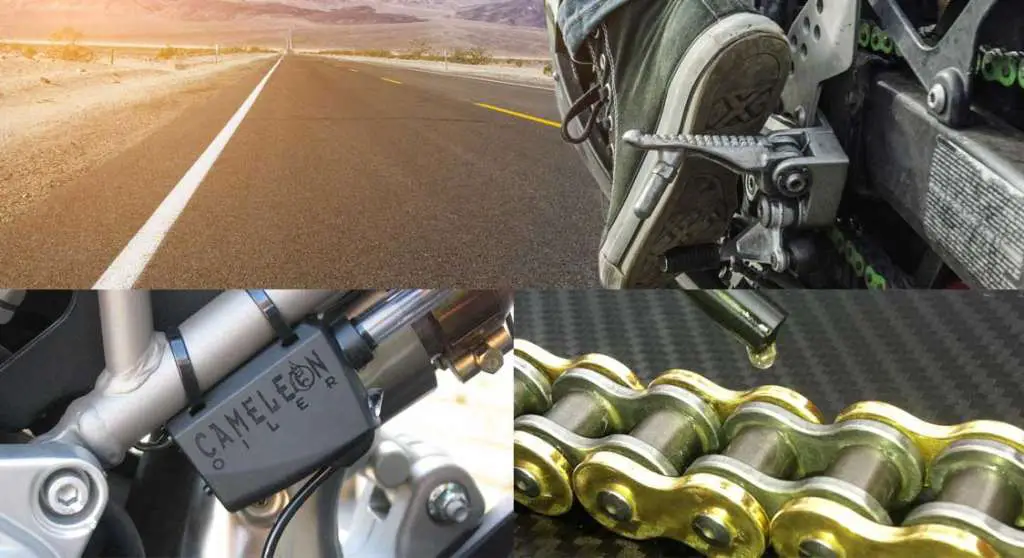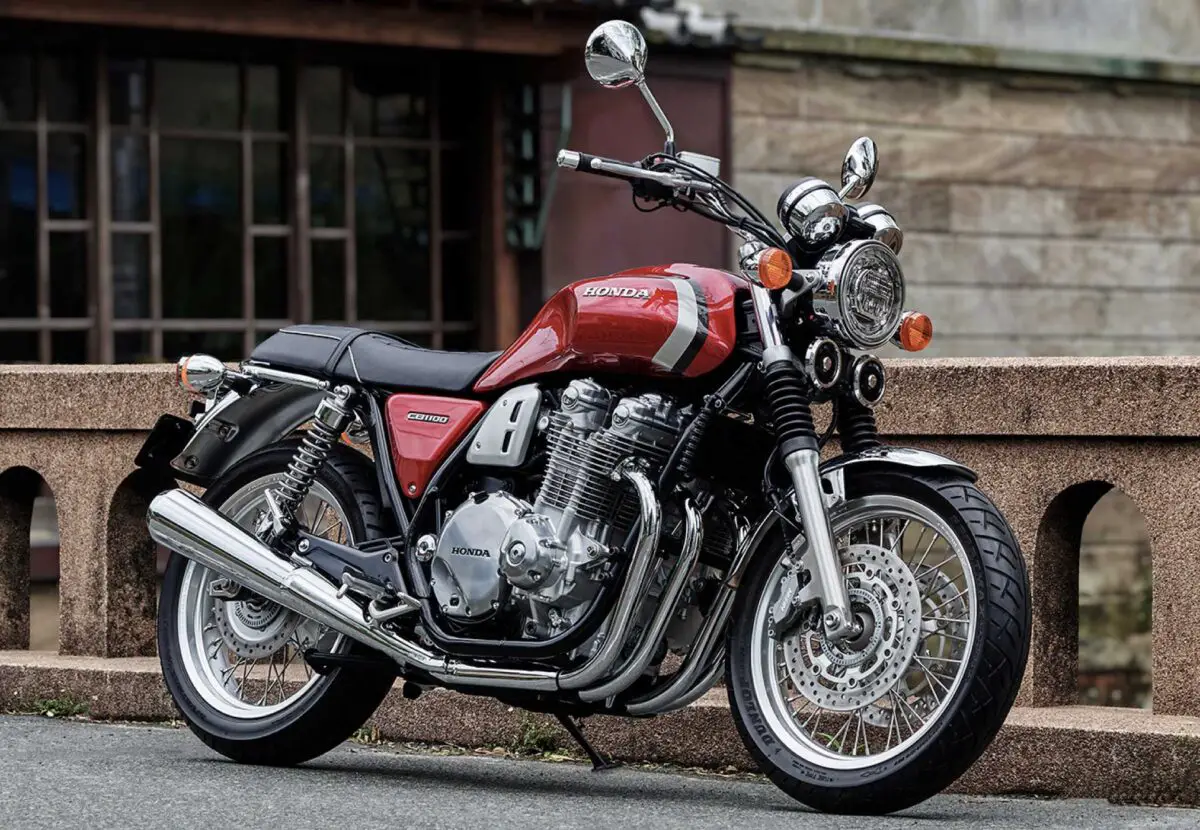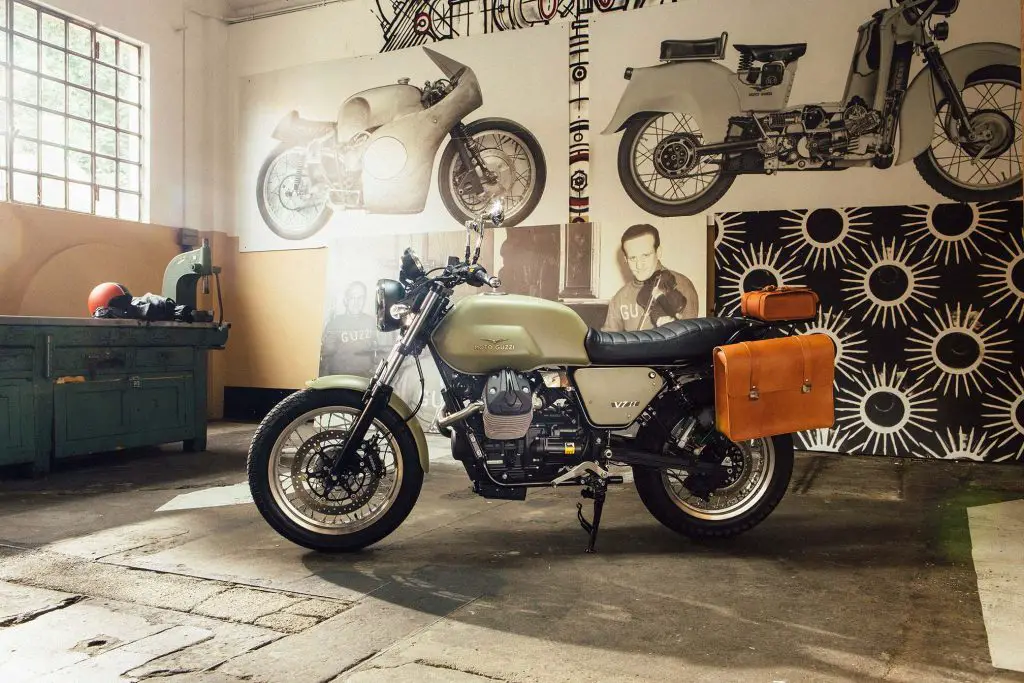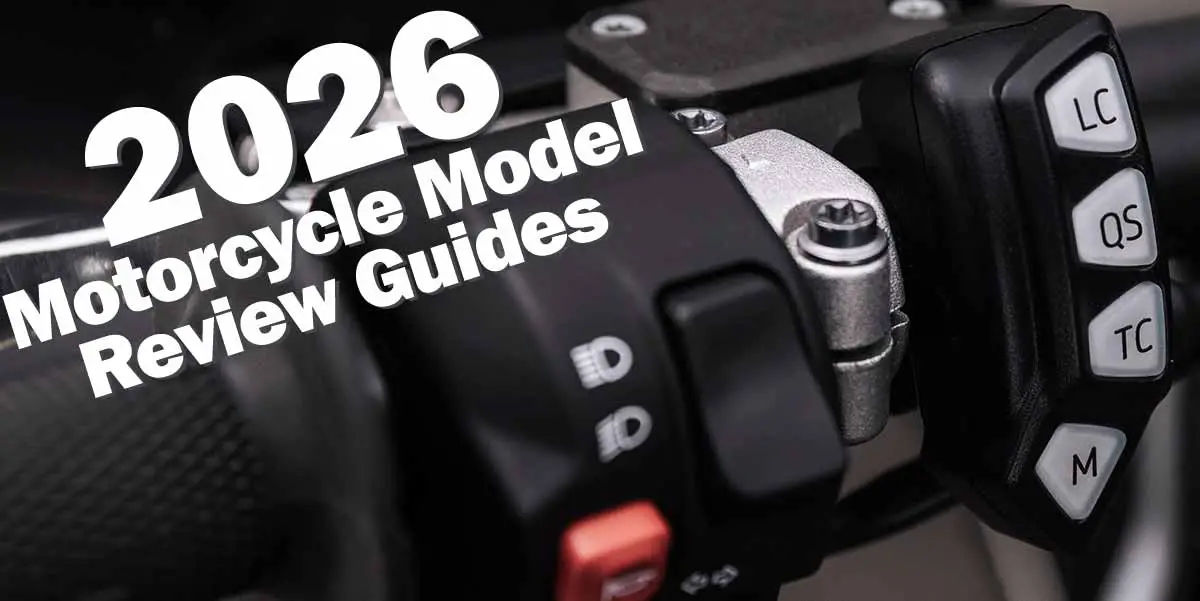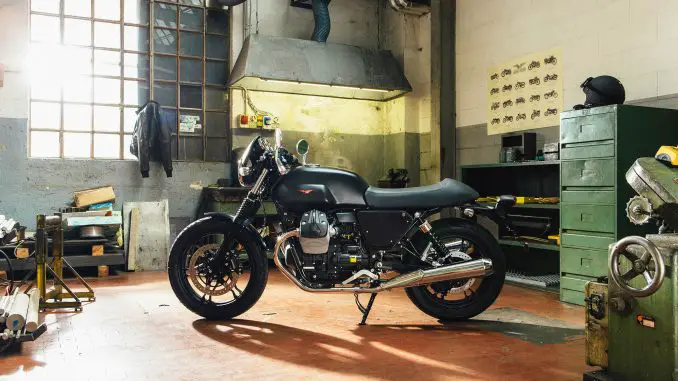
Basic Motorcycle Maintenance Schedules
Riding isn’t just throttle and brakes – it’s also wrenches and checklists. Regular maintenance keeps your bike safe, reliable, and fun.
Oil & Filter
The Challenge: Oil lubricates, cools, and protects your engine. Neglect leads to wear, overheating, and costly damage.
🚫 Myth‑busting: “Synthetic oil lasts forever.”
Reality: Even synthetic oil breaks down with heat and contaminants. Follow mileage/time intervals.
✅ Rider Strategies
- Change oil every 5,000–8,000 km (or annually, whichever comes first)
- Replace oil filter with every oil change
- Check oil level monthly – more often on older bikes
🛠️ DIY Drill
Practice a simple oil check: warm the bike, shut it off, wait 2 minutes, then check the dipstick or sight glass. Note the difference between hot and cold readings.
| Task | Interval | Notes |
|---|---|---|
| Check oil level | Monthly | More often on older bikes |
| Change oil | 5,000–8,000 km / 12 months | Follow manual for exact spec |
| Replace filter | Every oil change | Use OEM or quality aftermarket |
Chain & Sprockets
The Challenge: The chain transfers power to the wheel. Poor maintenance causes wear, noise, and even chain failure.
🚫 Myth‑busting: “O‑ring chains don’t need lube.”
Reality: O‑rings seal grease inside, but the chain still needs external lubrication and cleaning.
✅ Rider Strategies
- Clean and lube every 500–800 km, or after rain
- Check slack monthly – adjust to spec (usually 25–35 mm)
- Inspect sprockets for hooked teeth
🛠️ DIY Drill
Put the bike on a stand, rotate the wheel, and measure chain slack at multiple points. Learn to spot tight spots.
| Task | Interval | Notes |
|---|---|---|
| Clean & lube | 500–800 km | More often in wet/dusty conditions |
| Check slack | Monthly | Adjust to spec in manual |
| Inspect sprockets | Every 5,000 km | Replace if teeth are sharp/hooked |
Tires
The Challenge: Tires are your only contact with the road. Worn tread, low pressure, or age can mean sudden loss of grip.
🚫 Myth‑busting: “If the tread looks fine, the tire is safe.”
Reality: Rubber hardens with age. Even with tread, old tires lose grip.
✅ Rider Strategies
- Check pressure weekly – adjust to spec (usually 32–42 psi)
- Inspect tread depth (replace at 2 mm or less)
- Replace tires every 5–6 years regardless of tread
🛠️ DIY Drill
Practice using a tire gauge before every ride for a week. Build the habit until it’s automatic.
| Task | Interval | Notes |
|---|---|---|
| Check pressure | Weekly | Cold tires, use reliable gauge |
| Inspect tread | Monthly | Replace at 2 mm or less |
| Replace tires | 5–6 years max | Check DOT date code |
Brakes
The Challenge: Brakes are your lifeline. Pads, fluid, and rotors all degrade with use and time.
🚫 Myth‑busting: “Brake pads last forever if you ride gently.”
Reality: Pads wear even with light use, and brake fluid absorbs moisture over time.
✅ Rider Strategies
- Inspect pads every 5,000 km – replace if less than 2–3 mm
- Flush brake fluid every 2 years
- Check lever feel – spongy brakes mean air or moisture
🛠️ DIY Drill
Roll the bike slowly and apply each brake separately. Listen for squeal and feel for pulsing – early signs of wear or warped rotors.
| Task | Interval | Notes |
|---|---|---|
| Inspect pads | 5,000 km | Replace at 2–3 mm |
| Check fluid | Monthly | Top up with DOT spec |
| Flush fluid | Every 2 years | Moisture reduces performance |
Coolant
The Challenge: Coolant prevents overheating and corrosion. Old coolant loses effectiveness and can damage the engine.
🚫 Myth‑busting: “Coolant never needs changing.”
Reality: Additives break down over time, reducing corrosion protection.
✅ Rider Strategies
- Check coolant level monthly (when engine is cold)
- Top up with the correct type – never mix colors unless compatible
- Flush and replace every 2 years
🛠️ DIY Drill
Practice checking coolant level in the overflow reservoir. Learn to spot low levels before overheating occurs.
| Task | Interval | Notes |
|---|---|---|
| Check level | Monthly | Engine cold only |
| Top up | As needed | Use correct spec coolant |
| Flush & replace | Every 2 years | Prevents corrosion/overheating |
Valves
The Challenge: Valve clearances affect engine breathing. If they’re too tight or too loose, performance drops and damage can occur.
🚫 Myth‑busting: “If the bike runs, the valves are fine.”
Reality: Valves can drift out of spec gradually, with subtle symptoms like hard starting or ticking noises.
✅ Rider Strategies
- Check/adjust every 20,000–30,000 km (varies by bike)
- Listen for ticking or difficulty starting – early signs of issues
- Leave adjustments to a pro unless you’re experienced
🛠️ DIY Drill
Learn to recognize valve noise: compare your bike’s idle sound when new vs. after several thousand km. Awareness is the first diagnostic tool.
| Task | Interval | Notes |
|---|---|---|
| Check clearance | 20,000–30,000 km | Follow service manual |
| Adjust valves | As needed | Special tools required |
Battery
The Challenge: A weak battery means no start. Heat, cold, and neglect shorten battery life.
🚫 Myth‑busting: “If it starts today, the battery is fine.”
Reality: Batteries can fail suddenly, especially in cold weather or after sitting.
✅ Rider Strategies
- Check voltage monthly (12.6V+ is healthy)
- Keep terminals clean and tight
- Use a smart charger if storing the bike
🛠️ DIY Drill
Practice using a multimeter: measure resting voltage, then again with ignition on. Learn to spot a weak battery before it strands you.
| Task | Interval | Notes |
|---|---|---|
| Check voltage | Monthly | 12.6V+ is healthy |
| Charge battery | As needed | Use smart charger |
| Replace battery | 3–5 years | Depends on use/storage |
Air Filter
The Challenge: A clogged air filter reduces airflow, power, and fuel efficiency. Dusty conditions accelerate wear.
🚫 Myth‑busting: “Air filters last forever if you don’t ride much.”
Reality: Filters degrade with time and environment, not just mileage.
✅ Rider Strategies
- Inspect every 10,000 km – more often in dusty areas
- Replace paper filters, clean/re‑oil foam or cotton types
- Never run without a filter – it risks engine damage
🛠️ DIY Drill
Remove and inspect your filter. Hold it up to light – if you can’t see through, it’s time to clean or replace.
| Task | Interval | Notes |
|---|---|---|
| Inspect filter | 10,000 km | More often in dusty areas |
| Replace/clean | 20,000 km | Follow filter type guidelines |
Cables & Controls
The Challenge: Clutch, throttle, and brake cables stretch, fray, or stick over time. Poorly adjusted controls reduce responsiveness and safety.
🚫 Myth‑busting: “If the lever moves, the cable is fine.”
Reality: Cables can fray internally or bind, failing suddenly without warning.
✅ Rider Strategies
- Inspect cables monthly for fraying or stiffness
- Lubricate clutch and throttle cables every 10,000 km
- Adjust free play to spec (usually 2–3 mm at lever)
🛠️ DIY Drill
Practice checking clutch free play: pull the lever and measure slack before resistance. Adjust at the perch or mid‑cable adjuster.
| Task | Interval | Notes |
|---|---|---|
| Inspect cables | Monthly | Look for frays, kinks |
| Lubricate | 10,000 km | Use cable lube tool |
| Adjust free play | As needed | 2–3 mm at lever |
Lights & Fasteners
The Challenge: Burned‑out bulbs or loose bolts compromise safety. Vibrations gradually loosen fasteners across the bike.
🚫 Myth‑busting: “If it hasn’t fallen off, it’s fine.”
Reality: Loose fasteners can shear or rattle free at speed. Small checks prevent big failures.
✅ Rider Strategies
- Check all lights monthly – headlight, brake, turn signals
- Walk around the bike monthly, tightening obvious bolts
- Use threadlocker on critical fasteners (per manual)
🛠️ DIY Drill
Do a “pre‑ride walkaround”: test every light, honk the horn, and tug on mirrors, levers, and pegs. Build it into your routine.
| Task | Interval | Notes |
|---|---|---|
| Check lights | Monthly | Replace bulbs as needed |
| Inspect fasteners | Monthly | Tighten loose bolts |
| Threadlocker | As needed | Follow torque specs |
Ride Further, Wrench Smarter
Basic Maintenance Schedule (10 Essentials)
| Item | Check Interval | Service Interval | Notes |
|---|---|---|---|
| Oil & Filter | Monthly | 5,000–8,000 km / 12 mo | Replace filter every change |
| Chain & Sprockets | Monthly | Clean/lube 500–800 km | Adjust slack to spec |
| Tires | Weekly pressure | Replace 5–6 yrs | Replace tread ≤2 mm |
| Brakes | Monthly | Pads 5,000 km / Fluid 2 yrs | Replace pads ≤3 mm |
| Coolant | Monthly | Flush every 2 yrs | Check cold only |
| Valves | Listen for noise | 20,000–30,000 km | Pro adjustment recommended |
| Battery | Monthly voltage | Replace 3–5 yrs | Use smart charger in storage |
| Air Filter | 10,000 km | Replace/clean 20,000 km | More often in dust |
| Cables & Controls | Monthly | Lube 10,000 km | Adjust free play 2–3 mm |
| Lights & Fasteners | Monthly | As needed | Threadlocker on critical bolts |
Tip: Print this table and keep it in your garage or tank bag. A few minutes of checks can save hours of roadside trouble.



